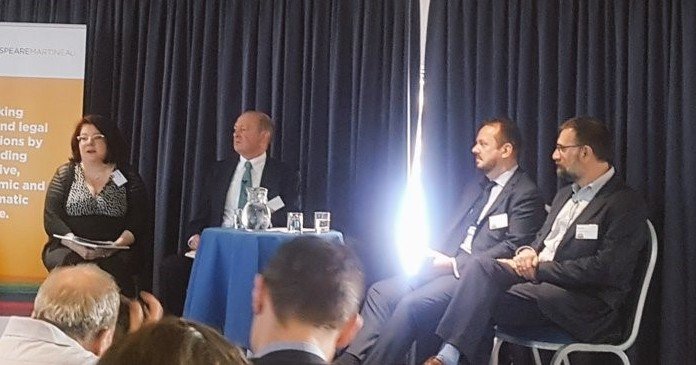
The Commonwealth Games coming to Birmingham have the potential to be a catalyst for change, the challenge is to maximise that change within the demanding timescales. Looking to past mega events and evaluations can help us quickly adapt and adopt best practice and make decisions at speed. Yesterday morning I was part of a panel discussion looking at how business can get involved with the Commonwealth games held by Insider and my task was to focus on the lessons learned from other similar events. But first to reflect on the challenges the panels saw:
- Time, most events are done over a 7 year time horizon, Birmingham has 4, so the speed of decision making is paramount
- Collaboration, building on the already strong collaboration gathered for the bid and ensuring momentum carries on under the strong leadership of Cllr Ian Ward
- Engaging the local community and the business community in the benefits whilst still delivering
- Making sure the games are part of a longer term strategic approach to regeneration and part of a journey, not the destination
So what do we know about past events?
We know that these types of events do have positive outcomes, the three main ones being:
- Radically changing perceptions of place and investment potential
- Creating world class facilities
- Focussing and accelerating regeneration and investments
However, economic impacts are often less substantial than original estimates, and lessons can be learnt from this for Birmingham. Evaluations have found 4 key areas that often fail the real impact test:
- Displacement of activity – if a city is already a major attractor of tourism or investment, a mega event can just displace that investment. For instance, if hotels are normally at 90% occupancy and are still at 90% occupancy during the games and its build up, then there is no additional benefit from the games, and it’s likely that custom has just moved to other places. Evidence suggested in London that more people worked from home, tourists avoided the period and business tourism dipped, because of displacement and crowding out of activity.
- Understanding aggregate spending – the estimates of impact are often based on whole spending; however, goods and services are then often ‘imported’. Examples are the same companies moving around the world providing services to the events; souvenirs and merchandise being shipped in from China or large companies taking contracts and delivering from a distance.
- Overestimating the impact of jobs, due to the temporary demand for labour – the impact of jobs are often short lived unless part of a wider regeneration plan. People come into a city to take up the roles and then leave, and local people can’t access the opportunities. This not only creates transitory and unstable labour markets and lack of sustainability it also means earnings are often not spent locally within the local business base.
- Displacement of spend – alongside the labour market spend issues above, there is also displacement of spend by residents. People only have so much money to spend on leisure and if they are spending on the games this can mean core retail and leisure offer is displaced, so spend on local restaurants, arts and other sports across the region can dip.

So how do we stop this happening?
We need to plan for displacement. If we expect it to happen we can prepare for the impact and turn it into an opportunity:
- Prepare the wider region to soak up displacement activity – don’t turn activity away, offer an alternative that can benefit from being in the region of the games and capitalising on the buzz, but far enough away to not be caught in the crowding out. The West Midlands is ideally suited to this as a 3 city region and it makes the strategic links with Coventry and Wolverhampton more important to develop. Greater collaboration between businesses to refer and collaborate and share opportunities it vital so income is not lost. In the longer term, this also spreads the impact of changing perceptions to the wider region and the spill-over effect of the games.
- Develop local supply chains and buy local – ensure procurement vehicles are up and running quickly to give local businesses opportunity to get involved. Meet the buyer and supply chain events enhance links between experienced firms and local supply chains.
- Develop employability and skills programmes specifically to meet the demand for the games which enable local people to benefit from the opportunities. There are good examples of this for other sectors in the region, such as BMet and the Business and Professional Services Sector. These should be based on the key employers and relevant skills suppliers developing collaborative approaches.
- Develop the brand of Birmingham, for the long term to maintain income streams, regeneration and investment. Identifying the games as part of an ongoing growth strategy which looks for similar opportunities, and mega events. This needs long term investments in the strategic partnerships being developed, consistency in strategic steer and direction, and collaborative ways of working which the games can galvanise and the West Midlands Community can continue.
In essence, the games cannot be a one off; they need to be a tipping point event on the road to inclusive and holistic growth.
Commonwealth Games further reading:
Peace, Alexander; Birmingham aims for silverware at games, IN EG, No 1751 13 Jan 2018, p30
London Assembly Regeneration committee; Relighting the torch: securing the Olympic legacy; London Assembly Regeneration Committee (Report available here) 2017
This blog was written by Rebecca Riley, Administrative Director, City-REDI, University of Birmingham.
Disclaimer:
The views expressed in this analysis post are those of the authors and not necessarily those of City-REDI or the University of Birmingham.
To sign up for our blog mailing list, please click here.
